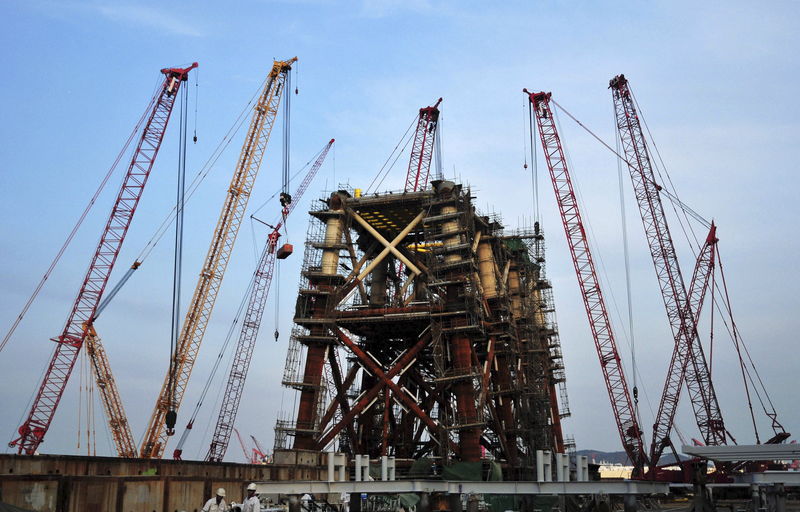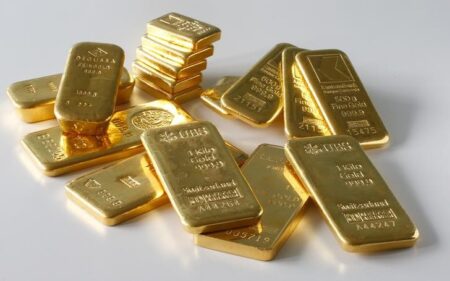Investing.com — Oil prices rose in Asian trade on Thursday, recovering a bulk of losses from the prior session amid weakness in the dollar and a tighter outlook for supply, while markets also digested mixed signals on monetary policy from the Federal Reserve.
Crude prices had retreated from three-month highs on Wednesday after the , but still left the door open for one more rate hike later this year. The move sparked some profit taking in oil markets, amid concerns that high interest rates will pressure crude demand.
But the Fed also signaled that the U.S. may not see a recession this year – a scenario that bodes well for oil demand, especially if local economic activity recovers from recent lulls.
This notion, coupled with a drop in the following the Fed decision, helped support oil prices.
rose 0.9% to $83.33 a barrel, while rose 1% to $79.53 a barrel by 22:07 ET (02:07 GMT). Both contracts were now once again close to three-month highs.
Oil buoyed by tighter supply outlook
Oil prices are expected to increase in the coming months, tracking tightness in global markets following supply cuts by the world’s largest producers.
Saudi Arabia and Russia both recently signaled lower production levels for August, with analysts expecting the supply cuts to potentially stretch into end-September.
The prospect of weaker supply helped offset a series of soft readings on U.S. inventories, with data on Wednesday showing that shrank less than expected in the week to July 21.
But U.S. contracted for a fourth straight week, while also weakened more than expected, indicating that fuel demand in the world’s largest oil consumer remained steady.
Promises of more stimulus measures in China also buoyed oil prices this week, on hopes that fuel demand in the world’s largest oil importer will recover from COVID-era lows,
More rate hike risks on tap
Beyond the Fed, focus this week is also on central bank meetings in Europe and Japan.
The is widely expected to hike rates by 25 basis points on Thursday, and could signal more rate hikes due to sticky euro zone inflation.
The is expected to keep rates at ultra-low levels. But some traders are positioning for a potentially hawkish surprise from the central bank, given that Japanese inflation has also remained sticky in recent months.
Read the full article here












